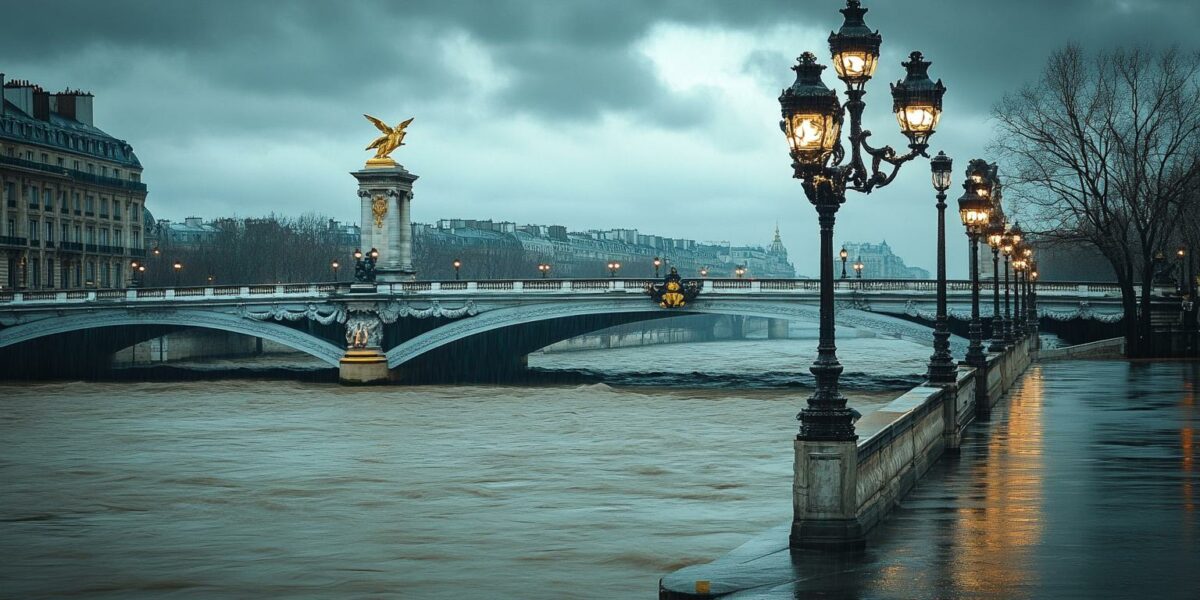Paris Olympics Face Unprecedented Weather Challenges
The Paris 2024 Olympics has been thrown into disarray due to extreme weather conditions. The climate crisis has led to a postponement of the men’s triathlon, initially scheduled for Tuesday. Organizers cited the equivalent of an entire July’s rainfall over just two days, leading to unsafe E. coli levels in the Seine.
After a 2:30am inspection, the decision was made to reschedule the race for Wednesday morning. The women’s triathlon is set to start even earlier, at 7am. This delay has raised serious questions about the balance between aesthetic appeal and athlete safety in the planning of these events.
According to Aurélie Merle, Paris 2024’s director of sports, the situation underscores the unpredictability of modern weather patterns. “We’ve gone from heavy rain to extreme heat in very few days,” she explained. This variability has made it increasingly difficult to maintain safe water quality.
Merle further revealed that of the four water test sites, only one met the required safety standards. The others showed E. coli levels ranging from 980 to 1,553 colony-forming units per 100 milliliters, well above the European safe limit of 900.
Safety Concerns Take Center Stage
Efforts to ensure the safety of athletes have seen significant investment. A massive €1.4bn has been spent to improve the Seine’s water quality, including the construction of a giant basin to capture rainwater and prevent wastewater from flowing into the river.
However, the threat of thunder and lightning in the next 24 hours complicates matters further. The current in the Seine is also higher than expected, posing additional risks for competitors.
A Team GB source emphasized that if the triathlon is delayed again, it may convert into a duathlon, replacing the swim segment with an additional run. The source added, “The forecast suggests it will only get worse, making it unsafe to swim.”
Key factors impacting the athletes include:
- Water quality: Elevated E. coli levels
- Current speed: Increased river flow
- Weather conditions: Thunderstorms and heat
Contingency Plans and Future Measures
If the weather conditions do not improve, the races could be pushed to a contingency day on Friday. This would allow more time for the water quality to return to acceptable levels. However, if the Seine remains unsafe, athletes will need to prepare for a duathlon.
The International Olympic Committee is exploring ways to accommodate spectators, especially friends and family of the athletes. Kit McConnell, the IOC’s sports director, mentioned efforts to consolidate two sessions into one, allowing more people to watch the events live.
Additional heat protection measures will be implemented if the races proceed on Wednesday. These include providing more ice, water stations, and enhanced support to ensure athlete safety amid forecasted temperatures exceeding 30°C.
World Triathlon’s Gergely Markus confirmed these preparations, emphasizing the goal of maintaining athlete safety. “We are working already with the teams to support even more the heat countermeasures,” he said.
Public and Environmental Implications
The postponement of the triathlon has sparked widespread public debate about the impact of climate change on major sporting events. Many are questioning whether enough is being done to address these issues at both local and global levels.
Environmentalists argue that these disruptions highlight the urgent need for more aggressive climate action. The weather extremes experienced in Paris are seen as a stark reminder of the broader challenges facing the planet.
As the world watches, the Paris 2024 organizers face the daunting task of balancing athlete safety with the desire to showcase the city’s iconic landmarks. The situation serves as a potent example of the complex interplay between environmental factors and global events.
The hope is that these efforts will pave the way for safer, more sustainable sporting events in the future. The lessons learned from the Paris Olympics could guide future hosts in mitigating the impact of climate change on global sports.



julianzenith
Could they have prepared better for such extreme weather? Seems like a massive oversight.
zoeyecho
1.4 billion euros on water quality and still issues? Money well spent, huh? 😜
genesis
I’m glad they’re taking safety seriously, but what a bummer for the athletes and fans.
eliana
How will this affect the athletes’ overall performance? Timing changes can be tricky!
Aubrey
So much rain in just two days! 😮 Mother Nature is really unpredictable.
Gabriella
Yikes, E. coli levels that high? How did they not see this coming?
mateokinetic
Wow, didn’t expect the weather to be such a game-changer! Safety first, though.